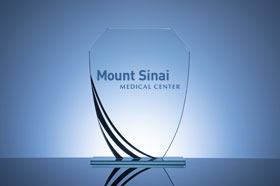- Patient Information
- Admission Information
- Billing & Financial Information
- Campus Map
- Center for Travel Medicine
- Contracted Health Plans
- Eldercare (PACE) Program
- Financial Assistance Information
- Guidelines for Surgical Patients
- International Patients
- Medical Records
- On-Site Pharmacy
- Patient Information
- Patient Rights and Responsibilities
- Preparing for your Doctor’s Visit
- Price Transparency
- Privacy Policy
- Respiratory Hygiene and Facial Coverings Policy
- Service Animal Information
- Share Medical Images
- Text Messaging & Calls Terms and Conditions
- Tobacco-Free Policy
- Your Secure Electronic Medical Record
- Pay my Bill on MyChart
- Visitor Information
Privacy Policy
Notice of Privacy Practices
This notice describes how medical information about you may be used and disclosed and how you can get access to this information. Please review it carefully.
This Notice Covers
Mount Sinai Medical Center provides health care to patients jointly with physicians and other health care professionals and organizations. Mount Sinai Medical Center and the individual described below together are sometimes called “us” or “we” in this Notice.
The privacy practices described in this Notice apply to all inpatient and outpatient departments, units and programs of Mount Sinai Medical Center, whether located on or off the main campus of the hospital, and will be followed by all employees, staff, trainees, students, volunteers and other hospital personnel who have a need to use your health information to perform their job, including physician members of the medical staff and allied health professional while they are caring for you in the hospital.
The individuals described above may share your health information with each other to carry out treatment, payment, or health care operation related to your care. This Notice explains generally how this hospital and the individuals described above might share or disclose your health information.
This Notice does not cover services provided in the private offices of physicians.
Understanding your Health Record/Information
Each time you visit a hospital, physician, or other healthcare provider, a record of your visit is made. Typically, this record contains your symptoms, examination and test results, diagnoses, treatment, and a plan for future care or treatment. This information, often referred to as your health or medical record, serves as a:
- Basis for planning your care and treatment.
- Means of communication among the many health professionals who contribute to your care.
- Means by which you or a third-party payer can verify that services billed were actually provided.
- A tool in educating health professionals.
- A source of data for medical research.
- A source of information for public health officials charges with improving the health of the nation.
- A source of data for facility planning and marketing.
- A tool with which we can assess and continually work to improve the care we render and the outcomes we achieve.
Understanding what is in your record and how your health information is used helps you to:
- Ensure its accuracy
- Better understanding who, what, when, where and why others may access your health information.
- Make more information decisions when authorizing disclosure to others.
Your Health Information Rights
Although your health record is the physical property of the healthcare practitioner or facility that compiled it, the information belongs to you. You have the right to:
- Request a restriction on certain users and disclosures of your information as provided by 45 CFR 164.52.
- Inspect and copy your health record as provided for in 45 CFR 164.528.
- Amend your health record as provided in 45 CFR 164.528.
- Request communications of your health information by alternative means or at alternative locations.
- Request that we restrict certain disclosures of information in your health record to your health plan with respect to health care items or services for which you, or someone other than your health plan, have paid in full.
- Revoke your authorization to use or disclose health information except to the extent that action has already been taken.
Our Responsibilities
This organization is required to:
- Maintain the privacy of your health information.
- Provide you with a notice as to our legal duties and privacy practices with respect to information we collect and maintain about you.
- Abide by the terms of this notice.
- Notify you if we are unable to agree to a requested restriction.
- Accommodate reasonable requests you may have to communicate health information by alternative means or at alternative locations.
- Notify you in the event that it has been determined that a breach of the privacy of your health information has occurred.
- Not disclose psychotherapy notes which are maintained by us without your authorization.
- Not disclose your health information under circumstances which would constitute a sale of such information under 45 CFR 164.508(a)(4) without your authorization.
- Not disclose your health information for marketing purposes without your authorization.
Although we may change our practices and to make the new provisions effective for all protected health information we maintain, if we do change our information practice we will post a revised copy on our facility web site.
We will not use or disclose your health information without your authorization, except as described in this notice.
For More Information or to Report a Problem
If you have questions and would like additional information, you may contact the Director of Health Information Management at 305-674-2320.
If you believe your privacy rights have been violated, you can file a complaint by contacting the Privacy Officer at 305-674-2722, or with the Secretary of Health and Human Services, Office of Civil Rights. There will be no retaliation for filing a complaint.
Examples of Disclosures for Treatment, Payment and Health Operations
We will use your health information for treatment.
For Example: Information obtained by a nurses, physician, or other member of your healthcare team will be recorded in your record and used to determine the course of treatment that should work best for you. Your physicians will document in your record his or her expectations of your healthcare team will then record the actions they took and their observations. In that way, the physician will know how you are responding to treatment.
We will also provide your physician or a subsequent healthcare provider with copies various reports that should assist him or her in treating you once you’re discharge from this hospital.
We will use your health information for payment.
For Example: A bill may be sent to you or a third-party payer. The information on or accompanying the bill may include information that identifies you, as well as, your diagnose, procedures, and supplies used.
We will use your health information for regular health care operations.
For Example: Members of the medical staff, our risk or quality improvement manager, or members of our quality improvement team may use information in your health record to assess the care and outcomes in your case and other like it. This information will then be used in an effort to continually improve the quality and effectiveness of the healthcare and services we provide.
Business Associates: There are some services provided in our organization through contracts with business associates who create, receive, maintain, or transmit protected health information on our behalf. Examples include certain laboratory tests and transcription services. When these services are contracted, we may disclose your health information to our business associates so that they can perform the job we’ve asked them to do and, if appropriate, bill you or your third-party payer for service rendered. To protect your health information, however, we require the business associate to appropriately safeguard your information as specified by a contract that provides the information will be kept confidential.
Business Decision Making: We may combine medical information about many hospital patients in an overview to decide what additional services the hospital should offer, what service are not needed, and whether certain new treatments are effective. We also may disclose information to physicians, nurses, technicians, medical students, and other personnel for review and education. We may combine the medical information we have with medical information from other facility to compare how we are doing and see where we can make improvements in the care and services we offer. We may remove information that identifies you from this set of medical information so others may use it to study health care and health care delivery without learning who the specific patients are.
Directory: Unless you notify us that you are object, we will use your name, location in the facility, general condition, and religious affiliation for directory purposes. This information may be provided to members of the clergy and, except for religious affiliation, to other people who ask for you by name.
Notification: We may use or disclose information to notify or assist in notifying a family member, personal representative, or another person who is responsible for you care, of your location and general condition.
Communication with Family: Health professionals, using their best judgment, may disclose to a family member, other relatives, close personal friend or any other person you identify, health information to the extent that it is relevant to that person’s involvement in your care or payment related to your care.
Research: We may disclose information to researchers when their research has been approved by an institutional review board that has reviewed the research proposal and established protocols to ensure the privacy of your health record.
Funeral Directors: We may disclose health information to funeral directors consistent with applicable law to carry out their duties.
Organ Procurement Organizations: Consistent with applicable law, we many disclose health information to organ procurement organizations or other entities engaged in the procurement, banking, or transplantation of organs for the purpose of tissue donation and transplant.
Marketing: We may contact you to provide appointment reminders or information about treatment alternatives or other health-related benefits and services that may be of interest to you.
Fund Raising: We may contact you as part of a fundraising effort. Your demographic data and dates of service may be provided to our institutionally related foundation for this purpose. You have the right to opt out of receiving such fundraising communications.
Food and Drug Administration (FDA): We may disclose to the FDA health information relative to adverse events with respect to food, supplements, product and product defects, or post marketing surveillance information to enable product recalls, repairs or replacement.
Workers Compensation: We may disclose health information to the extent authorized by and to the extent necessary to comply with laws relating to worker compensation or other similar programs established by law.
Public Health: As required by law, we may disclose your health information to legal authorities charged with preventing or controlling disease, injury, or disability.
Correctional Institution: Should you be inmate of a correctional institution, we may disclose to the institution or agents thereof health information necessary for your health and the health and safety of other individuals.
Law Enforcement: We may disclose health information for enforcement purpose as required by law or in response to valid subpoena.
Federal law provides that an appropriate health oversight agency, public health authority or attorney may have access to your health information if a work force member or business associate believes in good faith that we have engages in unlawful conduct or have otherwise violated professional or clinical standards and are potentially endangering one or more patients, workers, or the public.
MOUNT SINAI MEDICAL CENTER
4300 Alton Road
Miami Beach, Florida 33140
Effective Date: January 25, 2013
More About Mount Sinai
Mount Sinai MEDICAL CENTER
Review the latest health news and updates from across the medical center.
MOUNT SINAI MEDICAL CENTER
Read about our well-deserved reputation for the highest quality of care.
MOUNT SINAI MEDICAL CENTER
Learn more about the Irma and Norman Braman Comprehensive Cancer Center, scheduled to open in 2025.





